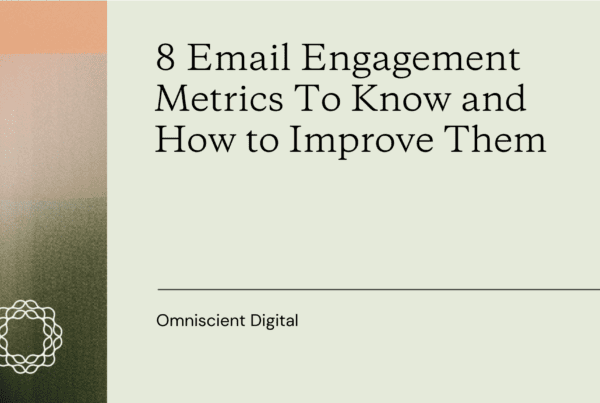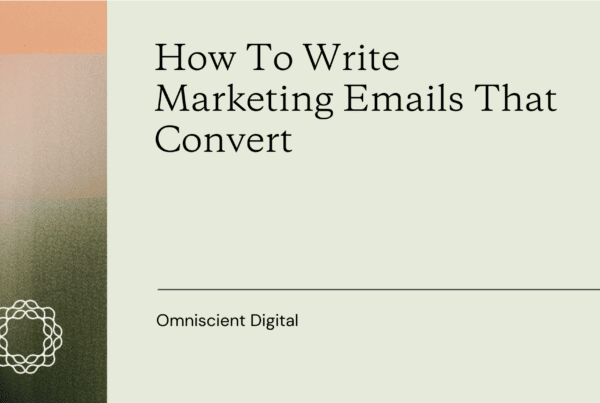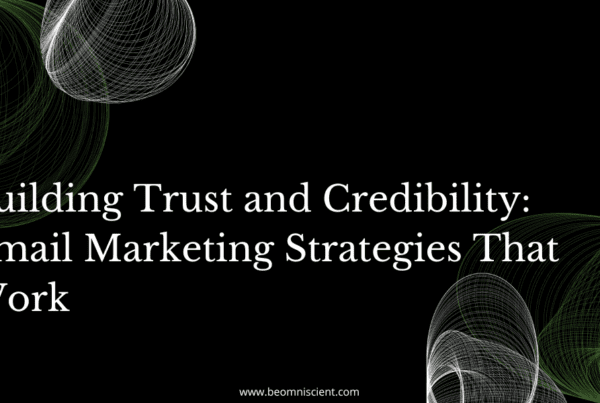
If you want to grow your brand and connect with your audience, you’re probably looking for a way to build trust and establish consistent communication. And, no matter how hard you look, you won’t hide from email, the ultimate marketing channel.
While some people are saying that email is dying and users are tired of spammy inboxes, we know the real truth: people will never get tired of valuable communication. The trick is to create an email marketing campaign that resonates.
In this blog post, we will help you choose the best email marketing software and provide tips for setting up a campaign. This will help you get noticed by your audience in 2024.
What is email marketing software, & why do you need it?
Email marketing, a digital strategy that involves reaching out to your target audience through email inbox, is one of the oldest and most popular forms of marketing. And there’s definitely a reason for that: with 4.3 billion email users worldwide, everyone wants a fair share of attention to their brand.
The decision to adopt an email strategy is a no-brainer, but the real question is how you make it stand out from the competition. Our answer is simple: combine your expertise and valuable content with proper email marketing tools to stay on top of your campaigns.
Email marketing software is a platform that helps you create email campaigns, set up sales automation, and manage everything in one place with real-life insights. As you scale your campaigns, managing security becomes critical. That’s why tools like a team password manager can help your team securely store and share login credentials across multiple email platforms, protecting sensitive information from unauthorized access
Other important advantages of an email marketing tool include:
- Accurate audience segmentation
- Easier process of A/B testing
- Automatic GDPR and CAN-SPAM Act compliance check
- Cost-efficiency
- Real-life reporting and analytics
These are all important aspects to consider when choosing email marketing software. For example, implementing GDPR within your email marketing strategy ensures that your campaigns are legally compliant and helps build trust with your audience by protecting their data. The list could go on, and it’s not hard to convince someone of the significance of software. The hard part is choosing the right fit among thousands of solutions.
What to consider when choosing the right email marketing tools?
Before you decide on an email marketing software, make sure you’re prepared and know the following:
- How does the solution comply with legal requirements for email marketing such as GDRP or CAN-SPAM
- Whether the solution is compatible with tools and resources you already have
- How to uninstall it to avoid data spills and privacy violations in case you eventually no longer want to use the email marketing software platform
In this article, we’ve gathered a list of the best (and most secure) email marketing software for various purposes so you can find the perfect match for your business.
The 12 best email marketing software of 2024
HubSpot
A part of the Marketing Hub, Hubspot Email Marketing software is a one-stop shop for creating, planning, sending, and tracking the progress of an email campaign.
HubSpot has an editor, segmentation tool, and customer relationship management (CRM) system to help with your email marketing. You can use these features to make sure your emails meet your customers’ expectations and match where they are in the sales process.
If you’re looking for an alternative to HubSpot CRM, you can find other options in the market that may offer similar functionalities and can fulfill your needs.

Free plan: Yes
Pros: All-in-one CRM, Easy tracking, Website builder
Cons: Integration, Time-consuming, Pricing
Price: $50-3,600/month
Best suited for: HubSpot CRM users, and companies searching for an all-inclusive marketing solution.
Mailchimp
One of the best email marketing services in the market, Mailchimp handles everything from landing pages to full-scale email outreach automation with the help of a drag-and-drop editor, automation, CRM integration, and dashboards.
Content creation features like Generative AI and Canva integration can help you create top-notch email templates and social media posts in a matter of minutes.

Free plan: Yes
Pros: Easy email builder, Price, Time-efficient
Cons: Limited marketing tools, Integration
Price: $13-300/month
Best suited for: SMEs and e-commerce platforms setting up an automated email marketing campaign/newsletter
Mailercloud
Mailercloud is a powerful and intuitive email marketing platform designed for businesses of all sizes—from startups to large enterprises. It offers a drag-and-drop email editor, advanced automation workflows, interactive AMP email capabilities, real-time analytics, and dynamic segmentation for personalized campaigns.
You can start with a free plan to explore essential features or upgrade to access tools like A/B testing, transactional emails, and detailed performance reporting—ideal for teams that want to scale quickly and effectively.
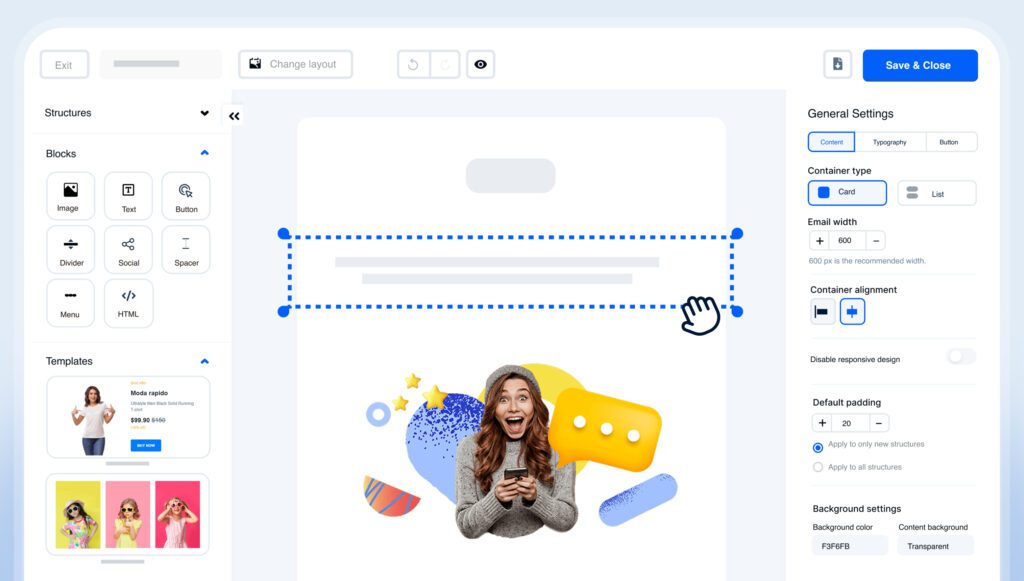
Free plan: Yes
Pros: Free plan, Advanced automation, AMP email support, Real-time analytics, Excellent customer service
Cons: Limited native integrations, Slight learning curve for complex flows
Price: $10/month+Best suited for: Startups, SMBs, and enterprise platforms looking for a scalable, feature-rich email marketing solution.
CampaignHQ
One of the best multi-channel email marketing platforms, CampaignHQ simplifies email and WhatsApp marketing with a drag-and-drop email builder, automation workflows, and advanced reporting. Businesses can create personalized email sequences, automate WhatsApp campaigns, and manage multiple domains seamlessly.
With features like email verification, warmup, and integration with AWS SES, CampaignHQ ensures better email deliverability and engagement.
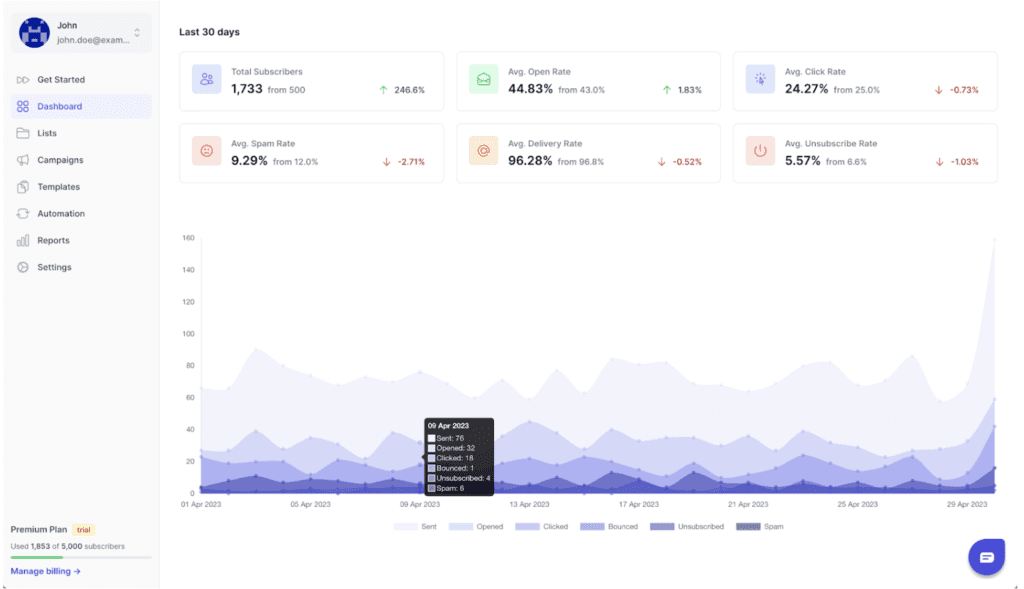
Free plan: No
Pros: Affordable pricing, Email & WhatsApp automation, Multi-domain support
Cons: Limited third-party integrations
Price: $5-$12/month (Unlimited email & WhatsApp plans available)
Best suited for: Businesses looking for a cost-effective, multi-channel email and WhatsApp marketing automation tool
Brevo
Brevo is an email marketing service that focuses on creating personalized marketing campaigns for B2B businesses. The free email marketing plan has no limits for the number of contacts and allows you to send up to 300 emails per day with an option to customize email templates from the gallery.

Image Source: Author’s screenshot
Free plan: Yes
Pros: Transactional emails, Drag-and-drop email builder, Unlimited contacts, SMS marketing
Cons: Integration, Interface
Price: $25+/month
Best suited for: B2B companies working with cold outreach and personalized email marketing campaigns
Moosend
Moosend is a well-known email marketing tool. It has an email editor, segmentation and personalization options, and a campaign monitor to track activities.
You can use a 30-day free trial to test out the important parts of paid plans. Then, you can pick the right plan for your future campaigns.

Free plan: No
Pros: Free trial, Customer service, Interface
Cons: No free plan, CRM Integration, Limited template gallery
Price: $9+/month
Best suited for: All types of businesses setting up an email marketing campaign
Instantly
Instantly.ai is an affordable email marketing platform dedicated to helping companies generate leads with a B2B email marketing strategy.
No matter how big your campaign is, the platform has unlimited tools that help keep your emails out of the spam box. These tools work automatically to warm up your emails.

Image Source: Author’s screenshot
Free plan: No
Pros: Unlimited email sending accounts, B2B lead database, Unlimited warmup
Cons: No free plan, CRM Integration, Interface
Price: $37+/month
Best suited for: B2B companies launching cold email outreach campaigns
ActiveCampaign
ActiveCampaign includes key features from previous companies and gives campaign managers even more freedom with an advanced marketing automation tool that pays attention to behavioral segmentation and buyer intent.

Free plan: No
Pros: Marketing automation features, Campaign manager, Web forms builder
Cons: Interface, Time-consuming
Price: $29-149/month
Best suited for: Experienced marketers launching email campaigns
Mailmodo
If your email marketing strategy is focused on building brand awareness and drawing attention to your brand, Mailmodo is a perfect tool for adding email marketing features such as calendars, polls, quizzes, or countdown widgets.

Image Source: Author’s screenshot
Free plan: No
Pros: No-code email integrations, 20+ Interactive elements, Dashboards
Cons: Limited templates
Price: $39+/month
Best suited for: E-Commerce and B2B brands trying to engage customers through an interactive email campaign
GetResponse
GetResponse is an email marketing service for small businesses and entrepreneurs working on brand awareness and demand creation. With GetResponse, you can easily set up a newsletter or a marketing campaign and track results.
The service also offers web push notifications for collecting contact information for your CRM.

Image Source: Author’s screenshot
Free plan: No
Pros: Easy set-up, Web push notifications
Cons: Pricing, Limited functionality
Price: $13+/month
Best suited for: Ecommerce businesses and solopreneurs building brand awareness through newsletters and email marketing
MailerLite
MailerLite is an email software that helps you guide your buyers through the buying process. It has features like a landing page builder, signup forms, and the ability to sell digital products directly in your client’s inbox.
The iOS app helps business owners track the campaign process on the go, and a template gallery will help them set up campaigns in a few clicks.

Free plan: Yes
Pros: iOS app for campaign tracking, Multi-trigger automation workflows
Cons: Not user-friendly, Time-consuming
Price: $10+/month
Best suited for: Startup and small business owners looking for free basic email marketing features for a campaign
Loops
A new player in the market, Loops positions itself as an email marketing solution for SaaS companies. The platform has a list of ready-to-use tools for email marketing campaigns, but you’re free to upload and manage custom integrations and campaign set-ups.
You can manage several campaigns at a time, including transactional email setup and event-based trigger loops. This free email marketing software allows you to run campaigns with up to 1,000 contacts.

Free plan: Yes
Pros: Niche focus, Customer service team, Campaign monitor
Cons: Limited functionality
Price: $49+/month
Best suited for: SaaS SMEs launching and managing email outreach campaigns
What to look for in email marketing software?
At first glance, all the features from the list are similar and the choice of a solution becomes purely subjective. It might be true in some cases, but having a specific email marketing strategy in place will help find the most effective tool.
Think of the goals and objectives behind the campaign. Do you plan to create an educational newsletter, run high-volume cold email outreach, or capture demand for your service by promoting a live-streaming event?
Then, think of your target audience, segmentation, content, and campaign management specifics. Once you have the answers, we suggest paying attention to these aspects of an email marketing platform:
Subscription plans
Every subscription plan has limits on contacts, emails sent per day, and domains you can use. Since you know the approximate scale of your future campaigns, choose the optimal pricing model to maintain a low Cost Per Acquisition (CPA).
CRM and advanced features
Platforms offer various software integrations and extensions, which later become the foundation for creating email lists and handling the campaign. Look for solutions compatible with your CRM and other paid tools used by your team.
Also, think of the marketing efforts you’ll need help with and see if the platforms have these built-in features. It can be anything from push notifications to an email builder.
Security and ethical considerations
Email marketing is often associated with something fishy or spammy, people are often afraid of clicking on a phishing link and compromising their information. Usually, that’s exactly why many users are hesitant about giving their contact info to a business. Your responsibility as a marketing specialist is to only share their personal information with a secure source. Implementing a malicious link checker in your email campaigns can help ensure that your audience stays protected from potential phishing attacks.
Do your research and make sure the email marketing platform is not easy to break into. Some penetration testing companies handle specific “ethical hacking” tests to catch vulnerabilities before it’s too late. Most big companies run these tests, and it’s okay to feel a bit skeptical before trusting sensitive data to a small, no-name company.
Look for platforms that offer robust identity theft protection features, including data encryption, multi-factor authentication, and regular security audits. This will give your users peace of mind, knowing their information is safe and secure.
When does email marketing actually create impact?
It’s fair to say an email marketing campaign will do nothing for your business if you don’t pay attention to other email marketing essentials: strategy, content creation, and understanding your market.
That’s why if you want to see a real impact on your ROI, consider the following preparation steps:
Conduct market and customer research
Find out trends in your industry, reach out to existing customers, and define common challenges and opportunities for your business.
Segment your audience
You can divide your target audience into two categories: behavior and demographics. This will help you match your campaign to their expectations and sales funnel stage. You can do this manually or by using a tool.
Create compelling content
If you want to draw attention to your brand, add value to your emails and be ready for users to look you up online. One way to begin is by using a random writing idea generator, selecting the most engaging and pertinent topics for your audience, and utilizing an AI writer to produce the content.
Plan your activities ahead
Sending out emails takes up 5% of the whole campaign process. Content only works well when you produce it consistently. Content planning usually includes drafting emails for future follow-ups, different response scenarios, external events, and behavioral triggers. Make sure you have a relevant content piece for every step your buyer makes. They will feel important and appreciate the effort.
Have a no-brainer offer in place
Finally, it’s important to know that no solution will be able to replace a valuable offer to the buyer. Email automation software is only a tool to properly deliver value, not create it.
And it’s the insights into the campaign that help you refine the value along the way.
Measuring, tracking, & improving your email marketing campaigns
Using email marketing software allows you to better understand your communication with your audience and make changes as needed while also maintaining a strong email sender reputation, which is vital for ensuring your messages reach recipients’ inboxes effectively.
Let’s start by measuring the success of your campaign. Some key performance indicators (KPIs) to consider are:
- Open rate
- Click-through rate
- Email deliverability
- Bounce rate
- Engagement rate
- Conversion rate
- Return on investment
Most of these KPIs are the default for marketing reporting tools, and you will be able to see them in real time.
If you want to get serious about the campaign, make A/B testing your priority. Tools will offer you the opportunity to send different emails to people in one audience segment, showing you what approach or working worked best. For example, you can check if shorter subject lines lead to a higher open rate.
Finally, you will have to pay special attention to direct feedback from your audience. Analyze their responses, be curious about their opinions, and integrate the data into your future campaigns.
Conclusion
To sum it up, email marketing software isn’t a stand-alone strategy to build a reputable brand. In today’s world, the average person receives many emails every day. Finding a solution and approach that works takes time, effort, and commitment. But email marketing software, along with high-quality conversion content from Omniscient, can become a booster for your brand’s growth.

Author’s bio
Alona Bontush is an SEO outreach specialist at Growthmate, a young and fast-developing link-building agency. She is passionate about helping businesses improve their organic search rankings and increase website traffic through strategic link-building campaigns. When it comes to outreach, she has both strong communication and persuasive conversational skills. Connect with Alona on Linkedin.
